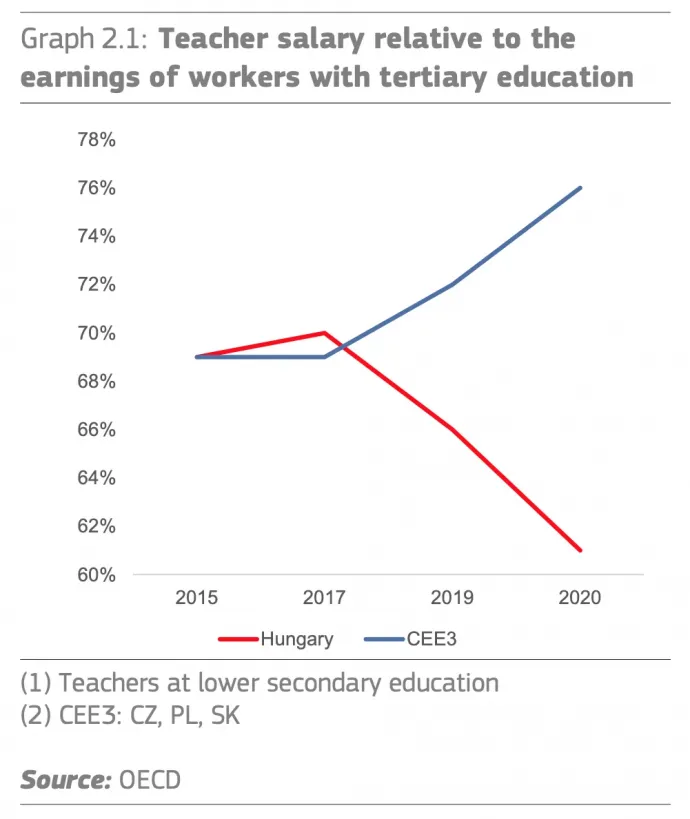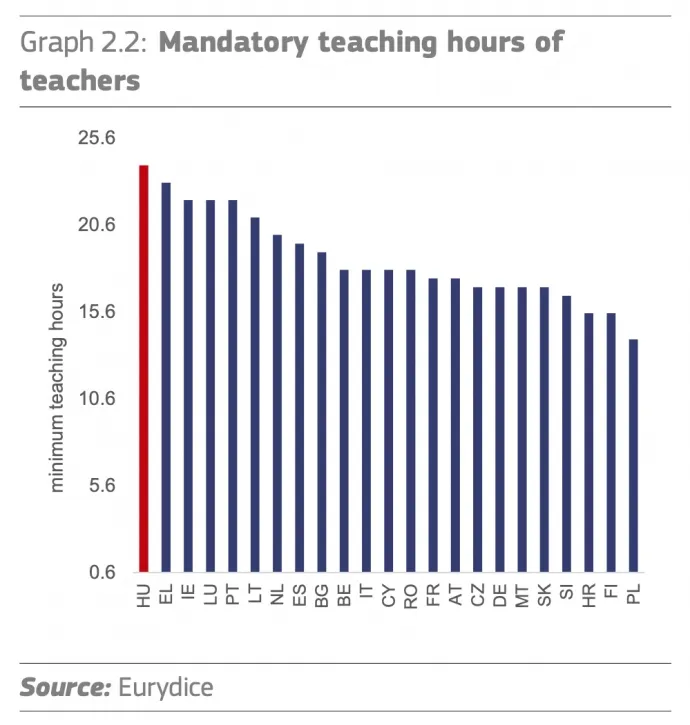
Out of all EU member states, the number of compulsory lessons taught by a teacher per week is the highest in Hungary – reveals a report published by the European Commission on Monday.
At the same time, when compared with the other 3 Visegrad countries (the Czech Republic, Slovakia and Poland) the salary of primary school teachers is devastatingly low. While in all other V4 countries teachers can earn up to 75 percent of the average salary of other higher education graduates, this number barely reaches 60 percent in Hungary, and in some areas it is even lower than that: between 58-66 percent.

It is thus not surprising that due to this, the educational results of the country are well below the EU average: “Unlike the current EU trends, the number of those leaving the education system early has grown in Hungary in the past decade: in 2021 it rose to 12 percent, which is higher than the 9.7% EU average.
The number of those dropping out of school early is highest in the most underdeveloped regions, and it is six times higher among the Roma population”
– the report states. The Commission comments that the Hungarian education system should do more to support social mobility, as students coming from a disadvantaged background currently don’t have much chance for getting ahead in the educational system.
They write that „The low efficiency of the school system and the lack of equality within the same are most likely connected to the lack of curricular autonomy and the lack of socio-economic diversity, as well as the teachers’ low pay”. They also add that the lack of teachers is a growing problem in Hungary:
„Composite indicators, such as the teacher-student ratio do not reflect the shortage of teachers in Hungary. A more detailed analysis, however, reveals that there is a lack of trained teachers for subjects such as mathematics, natural sciences and foreign languages. (...)
There is an especially high number of trained teachers missing from schools with a high percentage of disadvantaged pupils. Due to the heavy workload and low pay, many of those who graduate as teachers end up working in another field.”

The report adds that other than the number of teaching hours being unprecedented within the EU, "due to the lack of sufficient support staff, many teachers also have to perform non-teaching tasks, such as out-of-school supervision." We have previously written about the Teachers’ Union attempting to organize a nationwide strike, which was then reduced to a wave of public disobedience protests due to a new law passed by the government.
Besides public education, the report also expressed concerns about the outsourcing of higher education to foundations: “The important policy decisions of these universities are made by the newly established boards of trustees. These board members are appointed for life, and most of them are closely connected to the government.
At the same time, university employees have gone from being publicly employed to being privately employed, which has reduced their protection against dismissal. These are worrisome changes for academic freedom and the quality of education.”
via Portfolio
For more quick, accurate and impartial news from and about Hungary, subscribe to the Telex English newsletter!
The translation of this article was made possible by our cooperation with the Heinrich Böll Foundation.